Securing India from Within
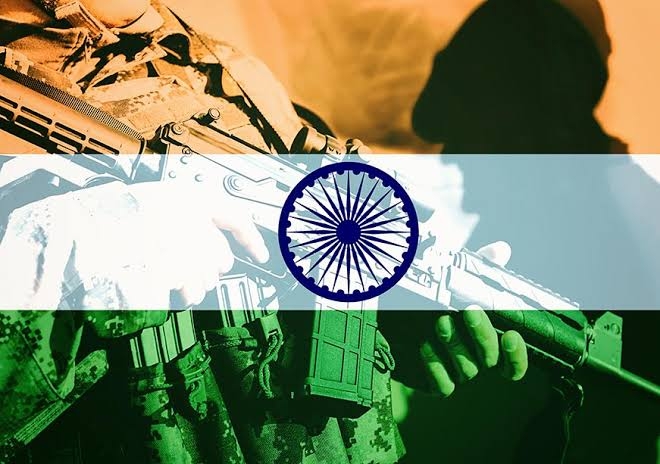
Bharat i.e. India is a vast country with diversified cultures, interests and goals. When things are so diverse; differences are bound to happen. Amidst differences of culture, caste, colour, creed, cuisine, costume, custom, conviction, we must somewhere find a consensus.
Our conflicting interests must not adversely affect our unified fabric i.e. to say private or group interests cannot overshadow our national interests. When the national interest is compromised, the seed of threat to internal security gets the required soil to flourish. Apart from obvious conflict of interests, there are certain categories of people who try to dismantle internal security with a systematic Anti National agenda.
Also, there are people or ecosystems of people, for whom their private interest is paramount and for that they can jeopardise the security of the country. Likewise our diversity is our uniqueness but there is a flipside to it ; because of this diversity, often there is unrest among certain communities. This unrest also poses a harm to internal security of the country.
The internal security of Bharat is dependent on preserving the idea of Bhartiyata and this further brings the cultural aspect in the purview. It is also dependent on the security of the institutions it is governed and regulated by. Therefore the balance of power between the wings of state and its stakeholders is also necessary for internal security.
Types of Threats
Bodily Threats - The primary job of the state is to preserve life and limb of both citizens and non citizens. When bodily security is under constant danger, economic prosperity can't be thought of. Instances of violence, defamation, hurting religious sentiments, murder rape, hurt, domestic violence, etc. creates lack of trust among citizens towards the state. This lack of trust is harmful for a stable future.
In this age of digital revolution when things are changing so fast the work of the state has expanded rapidly. The concept of state has also shifted from police state to welfare state. And now it is quintessential for the state to focus on the welfare of its citizens. But that can be done only, once the life and limb is protected.

So, personal security becomes quite important, when it comes to internal security. After all it is people who add up to make a nation.
Internal security of the country and countrymen can't be understood differently. They are intermingled & interconnected topics. Whenever the security of a country is in question, the personal security of its people is the first question mark.
Property threats - After head, comes the roof ; after life, comes the shelter. A person must have safe, sound & secured shelter to sustain his life and family. Instances of extortion, kidnapping for ransom, usurping of land, landlord- tenant fights, unsecured loan, debt trap, disputed title, disputed possession etc. are frequent examples of property threats.
After tangible property comes intangible property, i.e. the intellectual property. Intellectual Property Rights like copyright, trademark, design, trade secrets must be effectively regulated.
The owner of intellectual property must not be put to disadvantage. To protect the art, it is necessary to protect the artist.
Similarly, to attain prosperity, it is necessary to preserve the intellect which leads to prosperity. Internal security can't be achieved without prosperity. And prosperity comes from a sense of security in respect of property. Brain Drain is a significant threat to internal security.
False Narratives - In the present scenario, every country is endeavouring for better profit and this can't be done only by supplying good quality at good prices but also, you have to pull the other side down. This is done by the use of false narrative against the other country. Many American and European countries are using false narrative as a weapon to
destabilise Indian society & its economy.
One recent example is the Hindenburg- Adani row. Another example is the use of Anti-Indian toolkits during the farmers protest. A false narrative against the India made vaccines was initiated by American experts during Covid.
We have to accept that these narratives will increase in the future and the only way to deal with it is the intellectual shielding of our people. Economic security is a sub part of internal security and false narratives are proactively derogating our internal security.
Anti Capitalism - Anti capitalist voices in India are increasing, especially in the Indian Parliament. This directly affects the foreign direct investment in India, which has the potential to generate employment. Employment, in turn, will give us social security, which is again a sub part of internal security. Internal security can't be seen as a whole distinct topic; instead it's an accumulation of several forms of security.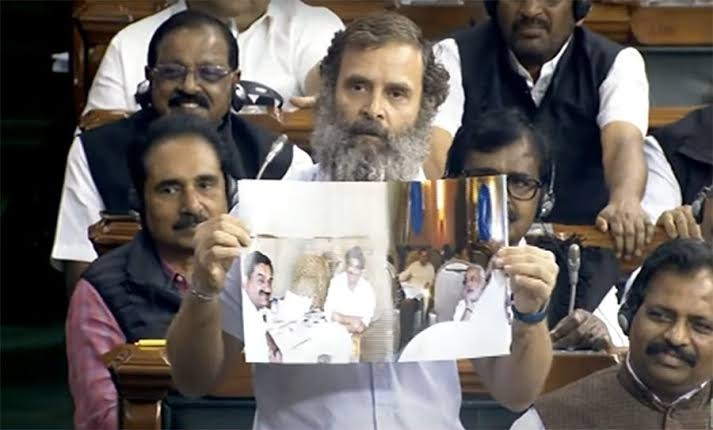
Corruption - The Indian bureaucratic and political system is corruption ridden. Corruption starts right from the peon level and goes to the top, till the Ministerial level. Imagine a situation where the people who are assigned the job of securing India, are themselves playing with its security.
That's like cutting the branch you are sitting on.Though the top tier is cleaner than before the roots of corruption are still intact. Termites are equally harmful to the wood, as an axe is.
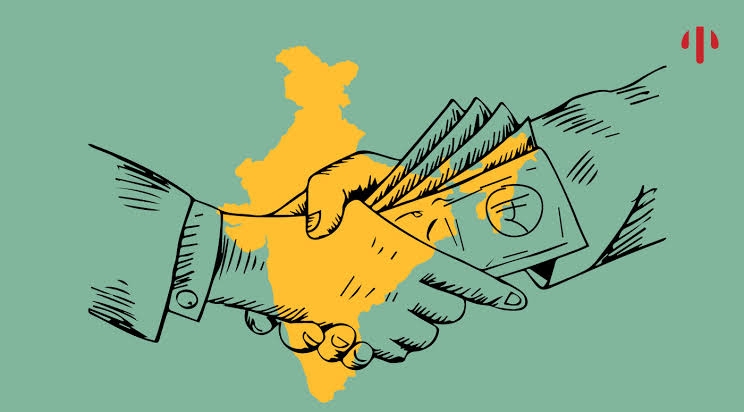
Gulf between rich & poor - The economic disparities between the rich and the poor ; the ever widening gulf between the haves and the have nots, is a constant danger for the internal security of India. This gulf creates a social unrest, which is detrimental for internal security.
Across the globe, we have examples of this gulf leading to the civil wars. I would not say that India is on verges of such a civil war, but the unrest and dissatisfaction, may take any turn and situation may turn upside down at any moment. It's better to fix the things, beforehand. After all, it's better to find the right girl to marry rather than finding a good lawyer for divorce.
Nizam-e- Mustafa - Nizam-e-Mustafa is a comprehensive idea of Islamic Ummah against the Indian Subcontinent. This idea is a product of the Quranic concept of Jihad. It is effectuated, by both, Muslims outside India and inside India (not necessarily all Muslims).
They may do it by means of :-
Conversion by fear, like in case of Kashmiri Pandits
Conversion by marriage & conversions by procreating children with non muslim girls, i.e. Love Jihad.
Conversion by coaxing deprived classes.
Conversion by demeaning other religions.
And this is a direct threat to internal security of India. It's an attempt to change the demography of India and also the constitutional setup of India. I am very carefully saying the constitutional setup of India, because the present setup will go as soon as the demographic changes in favour of the other side.
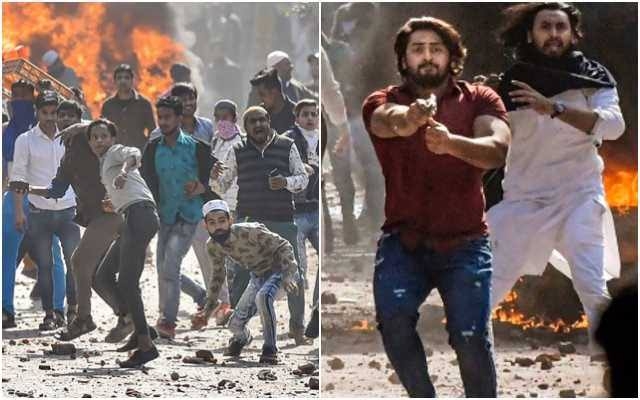
Christian Missionaries - Indian ancient education system - the Gurukul Parampara is now completely taken over by the Macaulay's education system. Christian missionaries have hijacked not only the school education but also our subconscious. So now for the majority, a student studied from a missionary is at a higher footing than a student studied from an institution, otherwise.
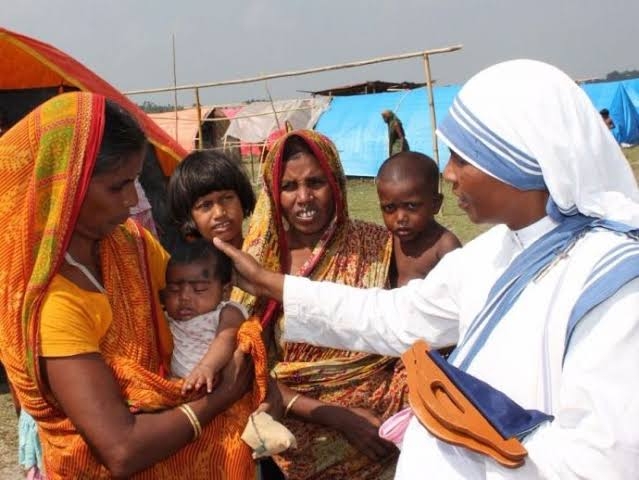
It's not a straightforward threat to internal security of India; instead it's a hidden threat. For me, a hidden threat is more dangerous than a visible threat, as you can't act on it unless it's visible.
Titanic would have escaped the iceberg, if it would have been visible earlier. In the introduction, I have mentioned that protection of Bharat and Bharatiyata are not two different things. Preserving the inherent culture of this country is essential for future security of this country.
Apart from capturing the education, the Christian missionaries have started rice bag conversions, especially of the tribal people who are in utmost need of money.
Usually religions that demand less discipline are favoured, against the religion who demand more discipline. This provides an opening to the Abrahamic religions to overturn the inherent Indian culture, which is ultra disciplined.
Disruption in Parliament - Internal security of the country largely depends on the legal structure of the country. Lawlessness is a threat to security. Absence of effective laws is an equal threat.
Existence of laws which may be good on paper but don't work on ground, are also harmful for the security of the country. Being a Parliamentary Democracy our laws are formulated by the parliament using the means of discussion, deliberation, constructive criticism and fair protest.
Over the years, the work of Parliament has expanded overwhelmingly, which has given rise to delegated legislation. Ideally there must be a limit on delegated legislation, in order to ensure that the true will of the public is enforced by their elected representatives.
But if the elected representatives are more interested in shouting, fighting, screaming and disrupting the proceedings of the parliament; it is difficult to get effective laws which in turn will strengthen the internal security of the country.
In the recent past, we have seen the proceedings of Parliament and various state assemblies, getting adjourned on a daily basis, without any due discussion because of such misadventures. If we fail to set our elected representatives to work in the right manner, possibly we will slide into an insecure future.
Nepotism & Cronyism - India appeared to be a Democratic, Republic only on the Preamble but on ground; India was a dynastic democracy for the first 60 years of its independence. Son, daughter, grandson, granddaughter, nephew, niece, friends, relatives etc. were considered the natural heir to the otherwise elected post.This scenario has changed to a large extent in the past decade but it has still not completely eroded.
If there is no equal representation, given to all diverse classes present in the country and the power will keep on revolving in one family or a group of families, then certainly the social security of the country will come to threat. As already discussed, social security is a facet of internal security. Internal security can't be confined only to the security of life, limb and culture, it goes beyond.
Judicial Overreach - Normally the words judicial and threat are not used together as judiciary is the most respected wing of the state. When the executive & the legislative actions are harsh on the citizens, it is then they go to the shrine of judiciary. But in the recent past, we have seen instances where judicial pronouncements have posed a threat to the security of the country.
Judiciary has somewhere over done their work i.e. they have entered into the zone of legislature or executive or both; and out of the way, they have created some legal fiction, which is not accepted to the general public.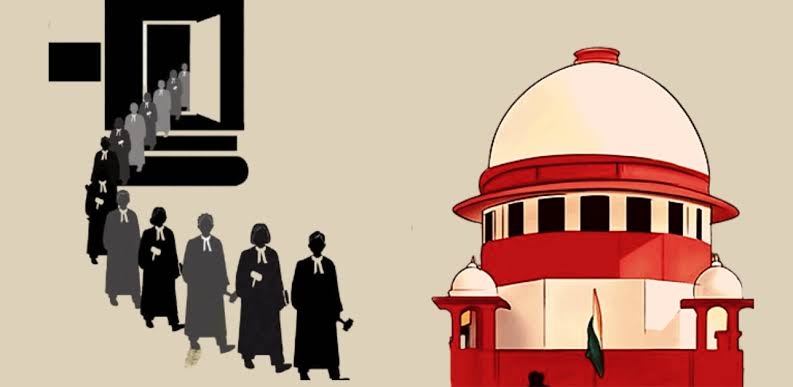
One such judgement was the Sabarimala judgement, where the judiciary extended the constitutional rights in a religious matter, without going into the nuances of the religion and the practice thereby followed.
The repercussions was that in the local area, near the Sabarimala temple, there was vandalism and resistance with the police. We can't always say that people were wrong to do so, against the judicial pronouncement just because the judiciary is the last interpreter.
Often it is the local people who know more about their religion and culture, and five men sitting on a bench may not sense the religious matters so correctly. Such judgments make the security of the general public a difficult achievement.
Appointment of Judges - Nowhere in the world do judges appoint judges. Now an argument which comes against it is that our democracy is unique. Concurred, but if our democracy is unique, why do the judges of our courts refer to foreign judgements, while assessing any matter inside the country?
If we are so unique, let's continue to be unique. Our constitution itself is inspired by constitutions across the world. Our constitution specifically mentions that the President shall appoint the judges, in consultation with the chief justice, and in no sense can consultation be equated to concurrence. If we do so, we are saying that constitution makers were not sufficiently educated in entering the word consultation in Article 124.
Coming to how it affects internal security. The process of judges appointing judges is not transparent ; it is tyranny of the unelected. No elected person has any say in the appointment of judges. What about security of a country, where the will of people is not secured; where the very word of the Constitution is not secured. For security, we not only need fair judgements, but judgements from fair judges, appointed by a fair procedure.
Hacking - The internal security of a nation is seriously threatened by hacking. It can be used to hack into vital infrastructure, steal private data, and attack military and governmental targets online. Anything from financial information to personal details about residents to military secrets can be included in this material. When this information is stolen, it can be used to extort money from people or businesses, blackmail them, or otherwise get the upper hand over a nation.
Critical infrastructure disruption is another risk posed by hackers. things like water systems, transit networks, and electricity grids. If these systems are compromised, they may become destroyed or deactivated, which would result in general chaos and disruption.
Cyberattacks against governmental and military targets can be launched via hacking. These hacks can be used to obstruct business processes, steal data, or even harm real property
Pornography - A society perpetuates it through its children. Every talk about internal security is to make an atmosphere conducive for the future generations. If at a tender age, youngsters are exposed to pornographic material, it is difficult to say that they can inherit a safe future from us. Polluted minds will not create a desirable society. Internal security of the country comes to threat when its future brains are polluted and are nourished with malafide conscience.
Online Gaming - The young generation is quite fascinated with online gaming. They are searching for easy money everywhere. In search of easy money, they lose what they already have in gambling. Even our scriptures have cautioned us against gambling, especially the Mahabharata. Online gaming is a sugar coated word to online gambling. State must endeavour to effectively regulate or prohibit such gambling in order to protect the younger generation from facing pecuniary loss. Internal security will come to threat when such loss faced children will start committing crime, to pay their losses. Situation has started worsening. In a recent case, a boy killed his mother to pay for the loss he suffered in and online gaming. Terrible !!
Conclusion
No problem is born solutionless. Human brain is capable of solving even the most complex problems of the world, especially the Indian brains- they are the top notch brains of the world. We have excellent energy, coming from our young population. We have good times ahead. These above mentioned threats must not be seen as a depressing trend, instead we must take them as a challenge and get rid of them, courageously. Modern day warfare has changed and for that modern day warriors must also change.
Every Indian citizen must consider himself/herself as an Indian Warrior, fighting against any barrier that comes in the way of security and prosperity of this country. This is our motherland,
who else - but we will take care of it,
who else - but we will sacrifice for it,
who else - but we will fight for it,
who else - but we will die for it.
Article by
Manas Jain
Younginker
Ujjain, Madhya Pradesh